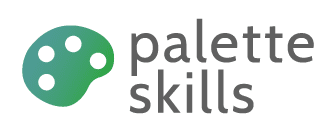We need to talk about workplace change
As an employer, you know that today’s Canadian workplace is different from what it was just 10 or 15 years ago. From factories to offices, the places where we work are more diverse and less hierarchical than ever before. Some of that change has been driven by demographics, while other changes are the result of sophisticated digital technologies. Finally, it’s obvious that the COVID-19 pandemic altered almost everything about the way—and even where—we work.
There’s another significant transformation going on in workplaces everywhere across the country, and it’s this: when it comes to hiring talent, more and more employers are focusing on a candidate’s potential and transferable skills, rather than relying on simple industry experience. And there are some important reasons why.

Understanding the value of non-industry experience
To understand the value that talent from outside your industry can bring to your business, it’s important to be honest about the value of traditional industry experience in the first place. Let’s put it another way: are you certain that hiring people used to doing the same thing in the same way is good for business? The fact is that over time, many industries and professions develop “silo” mentalities that not only over-value traditional experience, but also make it more difficult to see and welcome diversity and innovation when it’s right in front of them.
And that’s a problem. It’s been proven that diversity is good for business, while at the same time we also know that diversity is a seed-bed for innovation. And there’s something else to consider when hiring someone with oodles of industry experience: it turns out that previous experience in an industry doesn’t predict how successful a new hire will be!
Ultimately, bringing someone from the outside in is a great way to introduce positive change to your organization. A new pair of eyes can see problems and solutions in a different way which can be critically important for growth. However, to make this kind of hire work, you need to be able to identify the skills that are relevant for you and your organization.
Identifying transferable skills
So if we’re not hiring new talent based on simple industry experience, what are the kinds of skills we are looking for, and how can we identify them? As it turns out, there is an emerging consensus in management literature showing that so-called transferrable skills are some of the most important qualities you can look for in a new hire. Let’s zoom in at some of these key transferable and “soft” skills to understand why they are valuable in the workplace of today. The reason why these skills are called transferable is because workers take them from one workplace to another. These skills can be more human than technical, and form the basis of high-level professional and career skills.
Examples of these skills include things like adaptability, empathy, communication, teamwork, and being a great learner.
Let’s look at empathy in particular. People who are empathetic are able to understand situations from other perspectives, and can respond with compassion. This kind of skill is critical for business success. Why? In the era of automation and multiple channels, professionals need to be able to humanize the work world, which is important when it comes to high-value B2B tech sales, for example.
As an employer, you need to be thinking about the kinds of transferable skills that are actually required for a position, and be able to communicate what you need clearly when you advertise for talent. Make sure your interview process is designed to identify transferable soft skills by asking behavioural questions.
Tailor the onboarding process
Once you have hired somebody who shows great potential, you need to create a great onboarding process that helps that person adapt quickly and seamlessly into your organization. As it turns out, knowledge transfer is one of the most significant challenges that businesses and organizations face, so your onboarding process should be built with clear learning pathways and have measurable outcomes.
Remember that beyond learning about how day-to-day tasks get done, you’ll also want to help your new hire understand your workplace culture, and give them the opportunity to identify and share your organization’s values. One of the best ways you can do this is by establishing a mentorship program that pairs a new hire with an experienced employee.
Foster a learning culture
Transforming potential means building a workplace learning culture into nearly all aspects of your business. Start by cultivating a mindset that prioritizes growth and curiosity. People who are curious are also intentional about learning, and enjoy discovering something new about the world. These attitudes will help your business leverage innovation potential.
There are so many concrete steps your organization can take to help build learning and innovation. An obvious place to begin is by providing learning resources, but it can also include building learning outcomes into KPIs, tracking and understanding your employee’s skills gaps, or integrating learning outcomes into performance evaluations.
Set expectations and goals, measure success
Too often, employers do not take enough time to both set and give new hires clear expectations and goals. That’s a problem, because research shows that the lack of expectations and goals not only has an impact on individual performance, it can drag down your organization’s productivity. That’s why it’s important to set smart goals. S.M.A.R.T. stands for Specific, Measurable, Achievable, Realistic, and Time-bound.
As you bring a new employee into the workplace, be prepared to communicate openly and honestly about the learning curve that is ahead of them, as well as about the one that is ahead of you. Because a new hire may lack certain technical skills that are taken for granted in the industry, you need to be prepared for learning to take time. On the other hand, because you’ve hired based on a candidate’s potential and adaptability, the length of time they’ll take to get ahead of the learning curve will probably surprise you.
Finally, it’s critical to put in place a process for identifying success. Establish measurable KPIs and start tracking the achievements—and failures—of your new hires. You can begin by tracking things like turnover rates, promotion, productivity, and so on. But ultimately one of the best ways that you can measure and understand how an employee from outside of your industry is doing in your organization is by simply asking them. Make sure you are using well-designed surveys, and use them often!
Success stories
Want some examples of how valuable hiring talent from outside the industry can be? In this video, Eamonn Filinski of Achievers tells Palette Skills about how his organization was able to leverage a B2B (business-to-business) tech sales training program like SalesCamp to identify and hire employees starting off on a new sales career. As Filinski emphasizes, these employees have made a positive difference for his organization.
Or check out this interview with Damon Johnson at Global Ag Risk Solutions, who teamed up with the Automation and Digital Agriculture Specialist program from Palette Skills. For Johnson, this innovative program was the key to helping his organization go beyond traditional industry experience and hire outstanding candidates that he might not have found otherwise.
The new world of work demands talent that is outside of the ordinary. Now more than ever, old-fashioned recruitment strategies aren’t enough to ensure innovation and growth. At Palette Skills, we invite you and your organization to join with us to help grow new pipelines of non-traditional talent that will make a difference to you, and to the country. Find out more about Palette Skills, our national talent platform Upskill Canada, and about how you can get involved!








